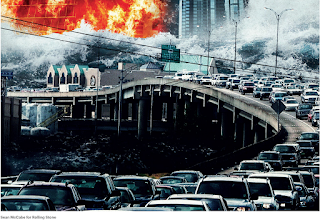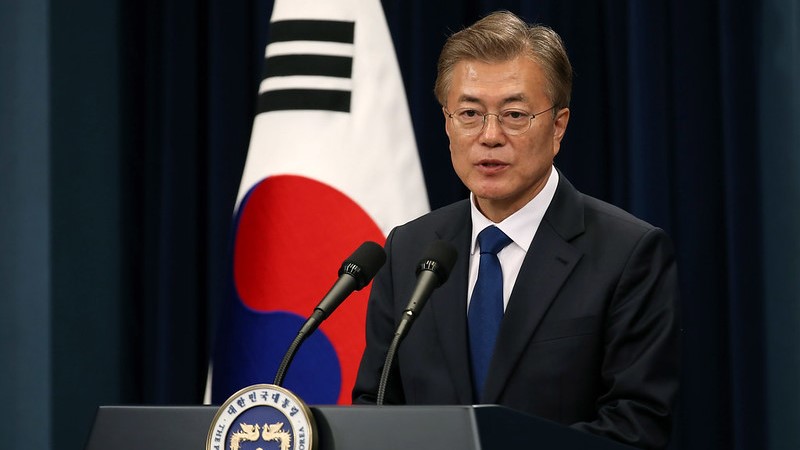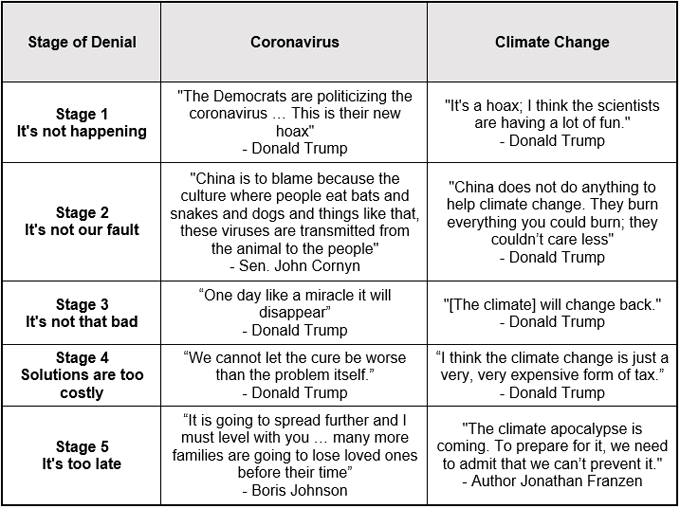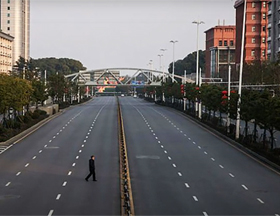It doesn’t matter that I have no places to go or people to see. With COVID-19 tossing normal life down the drain the world over, the shred of normalcy helps me stave off apathy, paralysis, and my sudden aversion to wearing proper pants.
I’m not the only one desperate for a little structure in my life in the age of social distancing and sheltering in place. Many of us who are fortunate enough to stay home during this crisis have been busy establishing work-life boundaries, maintaining an exercise routine, and staying in touch with loved ones. While these are all great ways to break up the monotony of sheltering in place, it’s also possible to pencil climate action into your newfound daily routine.
To get started, Grist put together a to-do list of daily climate-related activities that are compatible with social distancing for two weeks straight.
Day 1: Stock up — thoughtfully. Before you speed out to the store and panic-buy everything in sight, stop and take inventory. Check out everything you already own, notice what should be consumed soon, and write down what you really need. Bulk beans, lentils, and grains are solid options: They’ll stay good for ages, are healthy and versatile, and are climate-friendly foods. And having a consolidated, well-planned list and an organized fridge will prevent food waste — a major contributor to climate change — and save you unnecessary trips to the store. You can even take a first step towards growing some of your own food by buying an herb to grow on your windowsill — mint, sage, oregano, parsley, and rosemary are all pretty hard to kill. (Before you finalize your shopping list, check out the action items for Days 2, 5, and 10.)
Day 2: Power strips to the rescue. Now that you’re working from home (alongside a partner, perhaps, or kids home from school), consolidate your outlets and save electricity by plugging your chargers into power strips that can be switched off when you don’t need them. Ditto if you have a toaster, coffee machine, and electric kettle all plugged in on the kitchen counter. If you don’t own power strips, add them to your list for Day 1 — lots of essential stores sell them. It’s easy to forget about all the appliances we leave plugged in to suck up power like vampires, but now that you aren’t rushing off to work, it’s easy to stop wasting power.
Day 3: Junk mail begone! By your third day indoors, it’s probably become apparent just how much junk mail piles up when left to its own devices. Why companies still send snail mail advertisements addressed to “Current Resident” is beyond me, but asking to be taken off their lists will save paper, energy, and your time. The website Catalog Choice makes it easy to get off the mailing lists of businesses that just won’t leave you alone. Now’s also a good time to switch all your monthly bills and medical statements to online only if you haven’t already.
Read the original Grist article












